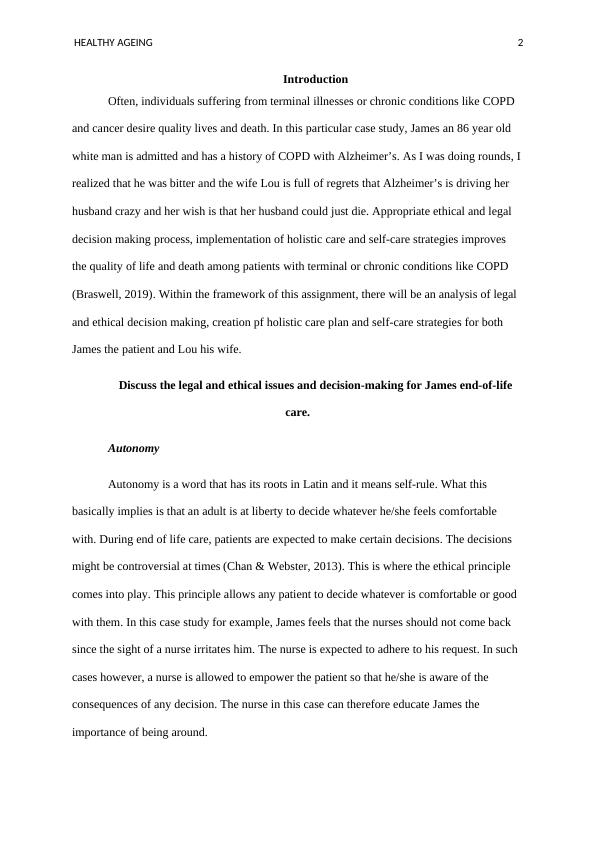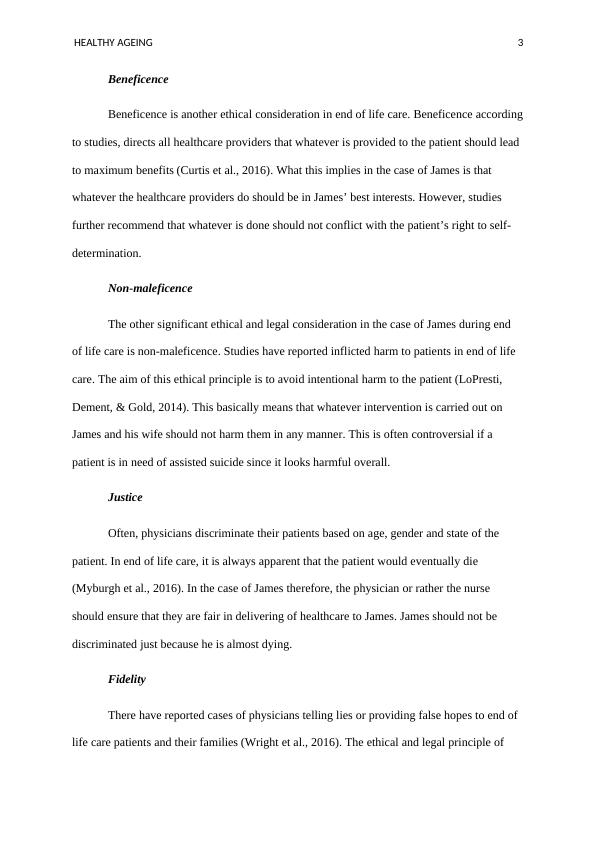Legal and Ethical Decision Making in End-of-Life Care
Determine the impact of physiological changes on older people and its implications for nursing practice.
7 Pages1450 Words359 Views
Added on 2023-03-30
About This Document
This assignment discusses the legal and ethical issues and decision-making involved in end-of-life care, focusing on a case study of a patient with COPD and Alzheimer's. It explores the principles of autonomy, beneficence, non-maleficence, justice, and fidelity. The assignment also covers the creation of a holistic care plan for the patient and self-care strategies for the patient's wife. Overall, it emphasizes the importance of understanding and incorporating ethical and legal considerations in end-of-life care.
Legal and Ethical Decision Making in End-of-Life Care
Determine the impact of physiological changes on older people and its implications for nursing practice.
Added on 2023-03-30
ShareRelated Documents
End of preview
Want to access all the pages? Upload your documents or become a member.
Ethical Issues in Mr. J’s Case Study
|4
|763
|451
End of Life Care for COPD and Alzheimer’s patient
|11
|2549
|473
End-of-life Care: Legal, Ethical Issues, Decision Making, Holistic Care Plan, Self-care
|12
|2577
|266
Ethical and Legal Issues in Nursing
|8
|2286
|317
Application of Ethical principles and theory
|6
|1469
|22
Ethical and Legal Consideration in Nursing Discussion 2022
|18
|1492
|28



